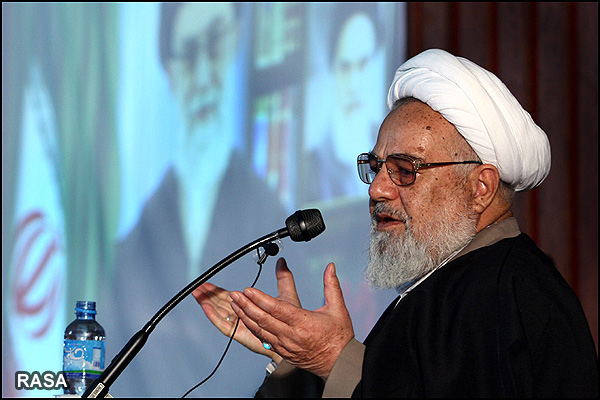
Rasa News Agency - Ayatollah Hasan Mamdouhi, a member of the Society of the Seminary Teachers of Qom, has told Rasa News Agency those who claim to follow the path of Imam Khomeini (RA) must follow his words in practice. “Our criterion for identifying those on the line of Imam Khomeini is their practice,” he said.
June 4 marks the 25th anniversary of Ayatollah Sayyed Ruhollah Khomeini, known as the Heart-Rending Departure of the Great Leader of the Islamic Republic of Iran by his followers. He was the leader of the 1979 Iranian Revolution, which saw the overthrow of Mohammad Reza Pahlavi, the oppressive Shah of Iran. Imam Khomeini oversaw the founding of the Islamic Republic of Iran and became the country's Supreme Leader, a position created in the constitution as the highest ranking political and religious authority of the nation, which he held until his death in 1989.
He pointed to the contradictory behaviour of some of the those who claim to be followers of Imam Khomeini, saying: “Some of those claim to follow the words of the Imam but their behaviour is in contradiction to his clear views and statements.”
Ayatollah Mamdouhi, who is the representative of Kermanshah in the Assembly of Experts, pointed out that some who claim to follow the line of Imam Khomeini have separated their path from the Supreme Leader, Ayatollah Sayyed Ali Khamenei: “According to the path of Imam Khomeini, Wilayat al-Faqih (Guardianship of the Jurisprudent) has no meaning if the claimants of this path do not do not obey his words. Their claims to be his followers are in vain.”
Ayatollah Mamdouhi said that the best commentator and follower of the words of Imam Khomeini is Ayatollah Khamenei: “He is the best commentator on the views of the late Imam and his clear words are those of the Imam. His words and actions are exactly the same as those of Imam Khomeini.”
One of the most important characteristics of the followers of Imam Khomeini is acting in accordance to the Holy Quran and truth. “Everything that is in accordance to the truth is permanent and eternal and has a very deep profound impact.”
111/112